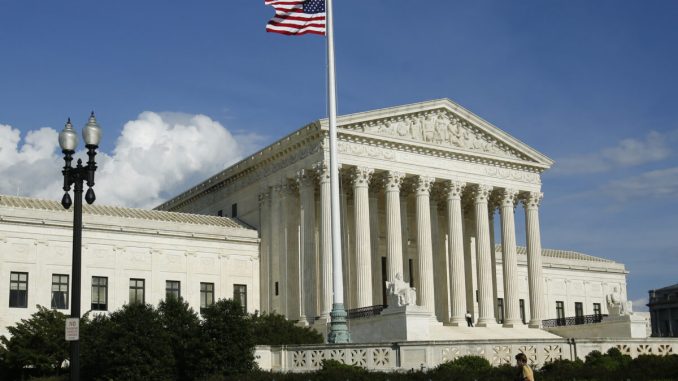

The U.S. Supreme Court on May 17 reiterated that the Constitution requires unanimous jury verdicts for state criminal trials, but it doesn’t apply retroactively, which denies relief to thousands of inmates who were found guilty via divided juries.
The court ruled 6–3 (pdf) to reaffirm last year’s decision that the Constitution requires a unanimous conviction. However, this time around, the Supreme Court argued in its majority opinion that it didn’t necessitate reopening closed cases.
Justice Brett Kavanaugh provided the majority opinion and was joined by Chief Justice John Roberts and Justices Clarence Thomas, Samuel Alito, Neil Gorsuch, and Amy Coney Barrett. The three members of the liberal wing of the court—Justices Stephen Breyer, Elena Kagan, and Sonia Sotomayor—dissented.
Kavanaugh wrote that the court’s “well-settled retroactivity doctrine” led to the conclusion that the decision doesn’t apply retroactively, and it “tracks the Court’s many longstanding precedents on retroactivity.”
During arguments, several justices noted the very high bar that past cases have set to making similar new rules retroactive.
The decision came in the case of Thedrick Edwards, an inmate in Louisiana serving life in prison after he was convicted by a divided jury on charges including aggravated rape, two counts of aggravated kidnapping, and five counts of armed robbery stemming from a crime spree in 2006.
The jury divided 10–2 on most of the robbery charges and 11–1 on the remaining charges. Edwards, who had confessed to police, was sentenced to life in prison without the possibility of parole.
In the dissent, Kagan wrote that the decision in 2020 “comes with a promise, or at any rate should,” adding: “If the right to a unanimous jury is so fundamental—if a verdict rendered by a divided jury is ‘no verdict at all’—then Thedrick Edwards should not spend his life behind bars over two jurors’ opposition. I respectfully dissent.”
Only two states allowed nonunanimous jury verdicts in criminal trials: Oregon and Louisiana, with Louisiana changing its law in January 2019.
Louisiana Attorney General Jeff Landry said the May 17 ruling was necessary.
“Today, the Supreme Court reaffirmed long-final convictions involving rape, murder, child molestation, and other violent crimes,” Landry, a Republican, said in a statement. “At a time when crime rates are through the sky and attempts to erode law and order are incessant, it is assuring that the Supreme Court upheld the rule of law.”
The Associated Press contributed to this report.
The case is Edwards v. Vannoy, 19-5807.






Be the first to comment